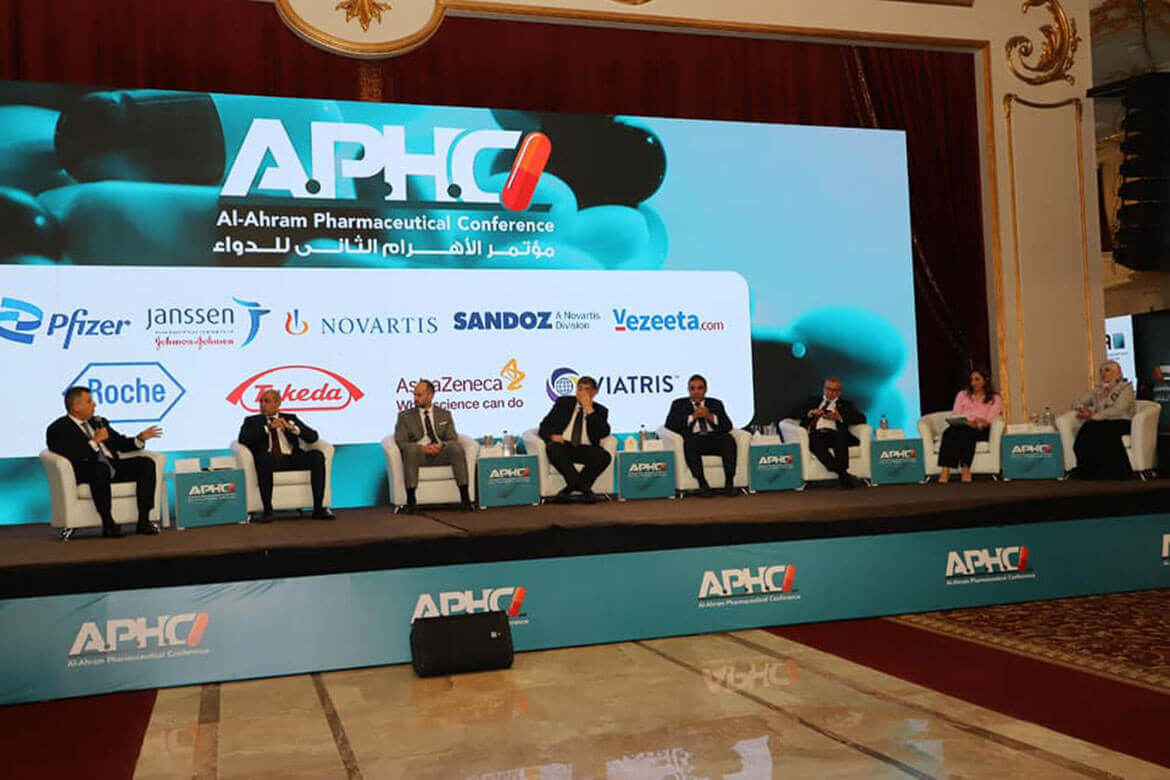During Al-Ahram Conference on Medicine, Dr. El-Metini presents Egypt's vision for the regulation of the pre-clinical and clinical studies law
Participants in the second session of the Al-Ahram Conference on Medicine, which was held under the title "Preclinical and Clinical Studies... Challenges and Opportunities and their Relationship to Lessons Learned from the Corona Pandemic" and chaired by Dr. Ashraf Hatem, Professor of Chest Diseases and Allergy, Chairman of the Health Committee in the House of Representatives, agreed on the importance of clinical trials and the need to review plans Research papers and documents for those experiences.
Where Prof. Dr. Mahmoud El-Metini, President of Ain Shams University and President of the Conference, reviewed in his paper titled "Egypt's Vision on the Executive Regulations of the Law of Preclinical and Clinical Studies", the volume of global spending on clinical research, and the Middle East's share of it, which does not exceed 1%, at a value of $500 million. However, it provides annual job opportunities estimated at about 400 opportunities and treats 10,000 patients.
He clarified several observations about Law No. 214 of 2020 regulating clinical medical research, the most important of which is the multiplicity of bodies whose approval is required for research protocols, and the existence of a conflict between the institutions responsible for approving the conduct of such research, in addition to the presence of several necessary steps before conducting medical research. Most notably, the review of the protocol that was approved by the founding committee, which he hopes will address some of the law’s flaws, and the inevitability of a protocol that is reviewed and approved by the competent institutional committee, provided that its approval is final in non-clinical medical research, before starting any medical research
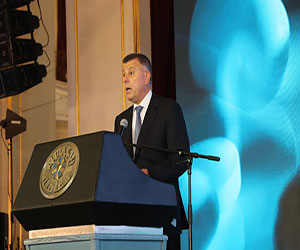 |
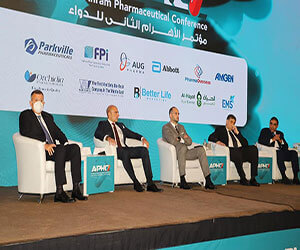 |
The Vice President of the Medicines Authority, Dr. Ayman Al-Khatib, stressed the role of the Egyptian Authority in the law regulating medical and clinical research, and that the Egyptian Authority may suffer from a future problem because it is the only body that has the right to issue decisions regarding clinical trials in addition to reviewing research plans and special documents that will be included in those experiments.
For his part, Dr. Hisham Al-Ghazali, Professor and Head of the Research Center of Ain Shams College of Medicine, said that scientific research has a great role in the localization of the pharmaceutical industry, especially oncology drugs in Egypt.
He stressed the need for a communication linking research and medical centers in Egypt to prevent dispersal in obtaining information and research papers in the pharmaceutical field.
Dr. Riad Armanois, CEO of "EVA" group, said that 94% of drugs are manufactured in Egypt and that the localization of medicines requires the localization of modern technology, adding that the group has established the Mark Research Center to support Egyptian clinical research, and the center will deal with preclinical studies, which are the most difficult in terms of it was prescribed from clinical studies because it needs technology support.
He added that the center allocates 20 million Egyptian pounds to support such research until the end of this month, and that researchers in all research institutions need technical support until they reach results that benefit the idea of pre-clinical research in Egypt.
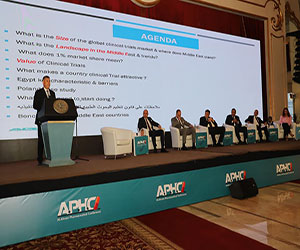 |
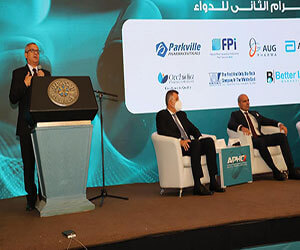 |
For her part, Dr. Ibtihal El-Demerdash, Professor of the Department of Medicines and Toxicology at the Faculty of Pharmacy, Ain Shams University, confirmed that the future of pre-clinical studies was not popular in Egypt, as we could not conduct new drug trials without enacting a law, and we are now in the process of a new challenge regarding the future of pre-clinical studies Clinical in Egypt.
She reviewed the role of the Clinical Research Center for some countries such as Russia and the European Union, and that in Egypt we need to support the executive regulations of the Clinical Trials Law and raise the efficiency of researchers through effective training.
Dr. Hatem Al-Wardani, President of AstraZeneca, discussed the role of multinational companies in advancing scientific research in Egypt, challenges and prospects, and continued to talk about the cost of scientific research that the world spends, which amounts to $200 billion per year.
And he demanded the necessity of activating Law 214 because Egypt does not need much to implement the new drug system due to the efforts made regarding infrastructure and human resource development.
Dr. Yousry Nawar, President of Pfizer and President of the Egyptian Association for Drug Research and Manufacturing, reviewed the opportunities and challenges facing the pharmaceutical industry, the vision of foreign companies to support the localization of the pharmaceutical industry in Egypt, and the opportunities and challenges of international pharmaceutical companies during their march aimed at supporting Egypt as a regional center for the pharmaceutical industry in the region.
.svg)

